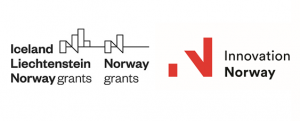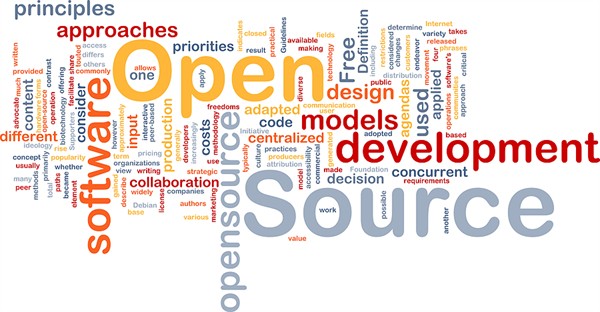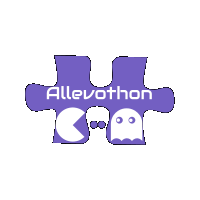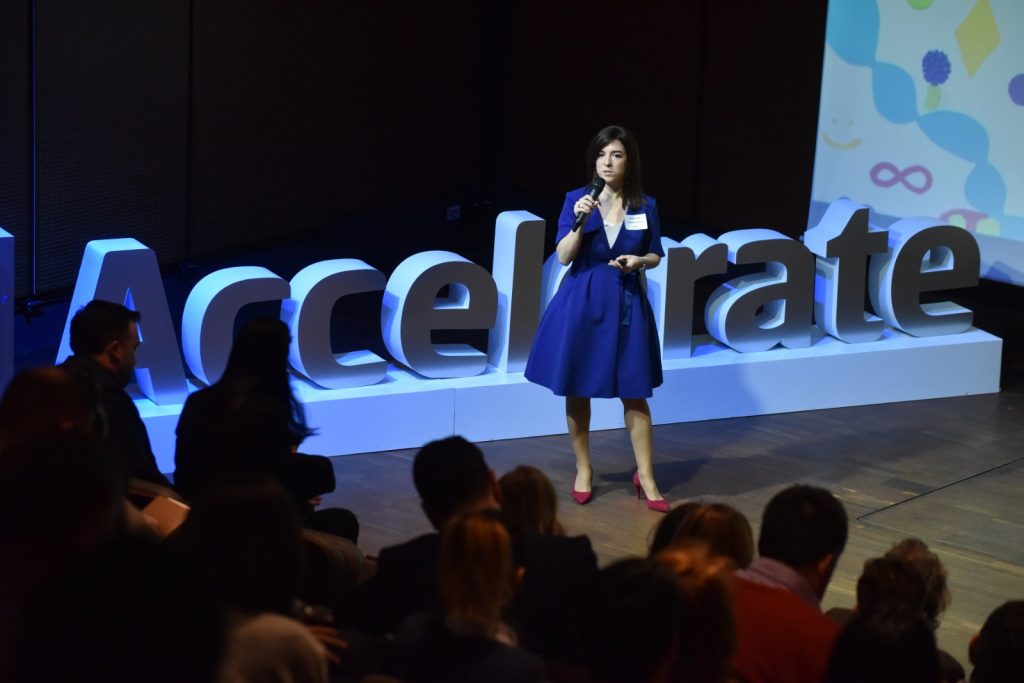The project is implemented in Bucharest, has an end date of 30 November 2021 and a total value of EUR 738.375, out of which EUR 420.000 non-refundable grant. The Whizzer project is aimed to create an open source software solution that offers financial operations as a service to SMEs, to help them automate and centralize common financial flows, at a very low cost: balance sheet, salary payments, invoicing, money flow automation, accounts payable and receivable, cash reporting. Target group includes banks, financial service providers and SMEs across Europe, with focus on SMEs, in terms of technical harmonization and communication on top of a well-built open banking layer.
The project includes an artificial intelligence component that ensures a detailed analysis of processed data. This component is designed and developed by Bakken & Bæck AS, a company with background and experience in building AI capability. This partnership is possible through the bilateral relationships between Norway and Romania, promoted by the financing program.
The project aims to increase the rate of financial inclusion, by addressing the ecosystem (banks, financial service providers and SMEs across Europe), with focus on SMEs, in terms of technical harmonization and communication on top of a well-built open banking layer.

What has Allevo achieved so far? We worked to define the business and technical requirements of the application, drafting specifications, and the architecture and design documentation. The project is running according to plan, with possible delay in finalizing the analysis phase, due to difference between the estimation between when we applied for the grant (Oct 2018) and the actual implementation (Dec 2020).
Features defined so far include:
- Product positioning, software as a service requirements, security, performance and product perspectives
- The main building blocks: admin zone, interfaces, transactions processing engine, reporting, audit trails
- Multitenancy
- Financial messages, data structures and message queues
- Business areas: payments, invoices, statements
- User actions
- Entities
- Reconciliation rules
- Processing stages: fetch, format, store, route, publish
- Accounts payable and accounts receivable: automatic and manual reconciliation options. Criteria: debit transactions with invoices received from suppliers, credit statement with issued invoices, debit statement with payments. For this feature our partner Bakken and Bæck helps with building an algorithm that learns from the data processed by the app
- Balance sheet: P&L Report, Balance Sheet Report
- Cash Reporting: liquidity report
Aside from all these, Allevo also worked on developing the software application that implements these requirements, and is building test scenarios and user stories for verification and validation purposes. Other activities that are co-financed include: project management, communication, software and hardware environment setup, and deployment and configuration of the final app on the existing environment. The deployment phase has not been started yet, it is planned for the final 6 months of the project.
We so far sent in three Interim Reports and received the co-financing amounts in a timely manner.
We are interested in feedback for the above mentioned features, so that we can develop the product to match expectations of the SMEs in the market. If there is a feature the management of financial department of your SME would like us to add, please reach out and send your feedback!
https://allevo.ro – https://fintp.org
SMEs Growth Programme: https://www.innovasjonnorge.no/smesgrowthromania
Do your research and apply. We did it without the help of a consultant, we secured the financing and we are now implementing the project on our own. Heads up for those entrepreneurs who do their homework and do things right.
Here’s a short tutorial of how to administer users and rights for the FinTPc application.
For some years now Allevo embraced the open source business model. That means we distribute our solutions unde free open source GPL v3 license.
We created an open source community for the financial industry – FINkers United https://fintp.org/.

We use this channel to share results of the projects we work on with the larger financial community, allowing anyone to benefit from our work. We will use this same community to share insights on the Whizzer project, lessons learned and its main results.
Why open source? Because community driven development, which allows anyone to understand more of the design and development process, to spot bugs or improvement areas, to improve the code and to test and audit it, is much more valuable than closed source development driven by one single vendor. Open source means better security, agility, larger contributor base and grounds for unlimited growth.
We now are almost half-way into the development of the Whizzer project. And would like to challenge the business community and academia to help us test and validate a couple of failure scenarios.
Call to action: please reach out via the https://fintp.org/ community or at ioana.guiman@allevo.ro.
For the accounts payable and accounts receivable feature our partner, Bakken & Baeck designed an algorithm that ranks transactions and creates matches and pairs of suggested matches. If we look at payments and invoices, there are some scenarios where matching can fail. Examples:
- Same Invoice paid twice: one is automatically matched and the other is offered as a duplicate and can be manually closed.
- Single invoice split into 2 credit or debit statement transactions.
- Invoices and Statements issued in 2 different currencies, this may also include some transaction fee charged by the bank or a dynamically changing conversion rate. Issue: how are fees listed in the statement and can they be linked to the transaction?
- Payment made to an account holder other than the one in the statement transaction.
- Matching statement transactions to the right business area. (i.e. debit statement with invoice issued or payment transaction). Reconciliation between invoices and statements is higher priority.
Allevo is very eager to receiving your feedback!
We were interviewed by Winnovart on our recent funding from Innovation Norway. Please find the original post on winnovart.com:
At Winnovart, we regularly promote European innovation champions, game-changing organisations in their sectors, as well as established industrial players looking to work with innovative technology companies. We are proud to contribute to their stories, by doing what we know best – accelerate their access to funding.
We are introducing Allevo – a Romanian innovator specialized in software solutions that helps banks, companies, microfinance and the public administration process financial transactions and achieve compliance. The company uses agile methods in the software development lifecycle process, leveraging a long-lasting customer intimacy relationship and easing access to the newest technologies. They are a successful beneficiary of the EEA & Norway grants.
Allevo creates open software for financial flow automation, bundles with support services and a complete outlook over the development process. Their purpose is to increase the number of companies who succeed with better financial management by distributing the company’s products under GPL v3 open source license and by using the expertise built over the last two decades to craft well-designed software solutions.
To support and accelerate their work the company applied for a grant to enhance the financial inclusion for the business ecosystem, i.e. banks, financial service providers and SMEs across Europe in terms of harmonised communication over a well-built open banking layer. Using artificial intelligence (AI) and machine learning algorithms, Allevo creates extra value to data gathered by banks and provides customers, individuals or corporates with products tailored to their needs. This allows companies to keep a lean infrastructure, avoid buying licenses and maintaining software only used to complete a slim list of tasks, while attracting more users with a pay as you go model.
Ioana Guiman, Managing Partner:
“At Allevo we strongly believe in developing open applications for customers to stay abreast and address swiftly and collaboratively industry moves such as real-time payments and better intraday management of liquidity and assets. We have had a successful history of achieved milestones we are proud of, whereas only in 2019 alone: National Winner in The Award for Innovation (0-25M turnover) category at the European Business Awards 2019; Partnered with WSO2 to provide open banking solutions in Romania; Allevo selected in BCR-InnovX Accelerator Program for Scale-ups, etc. The Whizzer project under the EEA & Norway grants opens up an opportunity for Allevo to extend our open business model by delivering functionalities as a service, bringing various perks to our customers.”
In 2018 Allevo applied for funding under the EEA & Norway grants in Romania, receiving a grant of 420k EUR. The project is currently in implementation.
For the Whizzer project Allevo partnered with the technology-driven design studio Bakken & Bæck to design and develop an open source software solution that offers financial operations as a service to SMEs. This helps SMEs automate and centralise common financial flows: balance sheet, salary payments, invoicing, and money flow automation, accounts payable and receivable, cash reporting. Automating the financial processes while also fixing them provides users with control on their data and financial decisions.
Please feel free to get in touch with Allevo if you would like to discuss cooperation options, or you can contact us here for an introduction.
If you are looking for European grants-funding options (including the EEA & Norway grants) to support the development of your company, keep an eye on the funding schemes we are promoting, share your project idea with us for a free funding readiness review from our side, or contact us here directly.
 You may have noticed a couple of social media posts mentioning this Allevothon. This was an internal hackathon organized with our production teams and lead by a Dutch team of consultants, ICT Institute.
You may have noticed a couple of social media posts mentioning this Allevothon. This was an internal hackathon organized with our production teams and lead by a Dutch team of consultants, ICT Institute.
Our goal was to review the existing software development processes and find points where these can be improved to make our team work and deliver in a more agile way. We looked at processes, tools, stakeholders, links between teams, communication, a few historic bottlenecks and then created six mini teams that would gather and work to crack something they’ve had for a long time in their pipeline.
So, we had quite diverse teams:
- Daniel’s Team
- Dream Team
- Data Team
- Devops Team
- Team Fluffy
- Team Squike
The big project we are working on now is Whizzer, a project co-financed with a grant from Innovation Norway. As part of this grant, we have the privilege of working with a company based in Norway, Bakken and Baeck. A company with deep expertize in building algorithms and leveraging data Allevo automates as part of the Whizzer project. Because this is one of our first projects where our production teams work closely with an external team, we thought we’d run first this internal hackathon to prepare.
Here are the 6 mini-projects the teams worked on, in summary:
Mockaroo: Use mockaroo API for inserting random gen data in input boxes. Create a new repository with multiple test data examples that is useful for analysis, dev and test. Result: a demo app with input form, with random generated data inserted when an icon is clicked in the input box. This is useful for automation of tests ran on the features of Whizzer.
Altova MapForce: Automation of mappings based on XSDs, interface structure with BO and business rules. Result: A demo of Altova used on Allevo specific input and XSDs. This is specifically useful in accommodating a higher number of formats, such as bank statement formats, when implementing this functionality in Whizzer.
Test data for reports: Using toad options, generate test data for test reports and demos. Result: A structured set of test data (with description of what has been generated) and a script/demonstration that uses the data. Focusing on prospected customer requirements, this allows creating rich data that Whizzer can use to enable the algorithms built by Bakken & Baeck to learn and become better at predicting patterns.
Customer Data Collector: Tool that automatically collects anonymized data related to app configuration and processing of transactions. Data should be used to replicate/investigate an incident reported by customers on Allevo’s environment. Result: Demo of a script that collects anonymized data about app configuration. The idea is that the customer runs this script and the data is used in debug mode. This is useful for the runtime of Whizzer, in the future deployment setup.
Testlodge: Use a tool for creating or importing test scenarios that also offers the option to see the progress of test runs in real-time. Result: A real-time demo of a test run. Learning: this is not fit fot Allevo or the future setup of Whizzer, due to integration mechanisms with other tools used.
Automated unit testing: Use junit or cppunit for creating multiple unit tests on several important features and functions prone to bugs. Find a code coverage tool and apply to unit, component and integration tests. Result: Several interesting example unit tests and a script that automatically runs the tests. This is useful for regression testing in future developments of Whizzer.
The results of Allevothon are very useful for the future of the Whizzer project. Allevo now has a selection of tools and methodologies appropriate for use in the development lifecyle of Whizzer. These can be later used by the open source community.
One more thing Allevo plans to use is the experience of running this hackathon, the plan being to extend invitations for the next one to partners like Bakken & Baeck or a scientific community like Magurele Science Park.
Drop a note if you have suggestions for improvement and ideas for future hackathon events!
And a big set of congratulations to the amazing team at Allevo, who put such passion in coming up with results in a such short amount of time!

Allevo joined forces with Unionsoft to increase business in Moldova. Unionsoft is a company based in Moldova, part of a group that helps businesses operate more efficiently. Professionals, enthusiasts, with an eye for technology, they saw the potential of promoting FinTPc in the business ecosystem in Moldova.
FinTPc helps companies automate their financial flows and centralize data, for more control, insights, forecasts and easy operations.
At Allevo we look forward to exploring this partnership and extend our product reach to companies in Moldova.
As you may recall, Allevo is working on Whizzer, a project co-financed by Innovation Norway Romania, under the EEA and Norway Grants.

What problem are we trying to solve? In short, financial inclusion. This is a long debated topic, which proves of utmost importance in the current crisis caused by the explosion of COVID-19.
We identified two sides of this problem:
– One of the unbanked, and underbanked SME’s in terms of access to finance, control of personal data and control over administrative processes;
– One of the ecosystem (banks, financial service providers and SMEs across Europe), with focus on SMEs, in terms of harmonized communication over a well-built open banking layer.
As we ourselves are one of these SMEs, feeling this problem in our own business, we decided to do something to help small and medium businesses operate more efficiently. Again, in the unfortunate situation we’re in, the outbreak of COVID-19, business continuity and disaster recovery emerges as one of the key risk mitigation plans that businesses need to have to secure their survival. Part of this is ensuring operational consistency and the possibility of working from a new location. As this article is published, our team works safely from the comfort of their homes. But what are some of the lessons learned of this emerging crisis?
Businesses need to have the capacity to remotely run their business, to keep productivity high, to automate as many processes as possible and make sure everyone knows what they have to do. Manual, or worse, pen and paper processes are mostly caused by comfortable employees who are not tempted to digitize or automate their work. They most often fail to understand the process. Opaque manual processes and their skeletons are a huge risk for business continuity. And as long as the financial process is in this situation, the future is not bright.
Back to Whizzer. Allevo partnered with Bakken & Bæck AS to design and develop an open source software solution that offers financial operations as a service to SMEs. This helps them automate and centralize common financial flows: balance sheet, salary payments, invoicing, and money flow automation, accounts payable and receivable, cash reporting.
Allevo builds on its experience with Open Banking projects and starts working on a easy to use and cost effective solution that offers a single window for the capabilities mentioned above. This results in an end-to-end integration of open source applications that provide this set of functionalities, with input at the source. What this means is that data is created only once and all stakeholders and applications use this same data, without re-entering it manually, nor via usual export and import working procedures. This ensures consistency and accuracy of the data that is being processed. It also ensures automation, bypassing the heavy use of paper that is common in financial processes due to bureaucracy, bad habits and lack of automation tools.
This solution uses artificial intelligence (AI) and machine learning algorithms to both profile and create personalized offerings designed by the bank for its customers, under their explicit consent. This gives extra value to data gathered by the banks and provides customers, individual or corporate, with better products, tailored to their particular needs.
Also, the solution enables banks to become more relevant and adapt their position in the market, by changing their offering in the spirit of recent European regulations (PSD2 and GDPR in particular).
This will result in lower logistical effort for the SMEs, an opportunity to standardize the communication between banks, FinTechs and companies and quicker access to finance for sustaining the business of an SME. This solution enables SMEs to be included in the bigger financial flow and it represents a first step in addressing financial inclusion.
Stay tuned for more on this topic!
Allevo exhibited at InnovX BCR Day on February 27th 2020. Ioana Guiman also had a keynote at noon, presenting the main result of the TOSS project, FinTPc, and how it helps SMEs achieve operational efficiency and better financial management. We also touched base on our experience as part of BCR-InnovX accelerator for scale-ups and how this helped Allevo set its growth strategy.
Here’s a recording of the talk:













 You may have noticed a couple of social media posts mentioning this Allevothon. This was an internal hackathon organized with our production teams and lead by a Dutch team of consultants,
You may have noticed a couple of social media posts mentioning this Allevothon. This was an internal hackathon organized with our production teams and lead by a Dutch team of consultants, 

